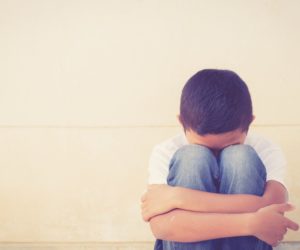How Children Are the Unseen Victims of the Opioid Epidemic

Between 2000 and 2015, the opioid epidemic claimed more than 500,000 lives, according to opioid epidemic statistics cited by the Centers for Disease Control. Opioids, including heroin and prescription painkillers, killed more than 33,000 people in 2015 alone, and currently, the epidemic claims 91 lives every single day.
Who is Addicted to Opioids?
Opioid addiction does not discriminate. While popular culture would have us believe in the stereotypical “addict” who’s down and out and living on the street, the opioid epidemic affects Americans from every socioeconomic bracket, including soccer moms, university students, corporate executives, and high school students. They live in both urban centers and in rural areas.
Nearly half of people who use heroin and prescription drugs graduated from high school, and around 30 percent have completed at least some college. One of the fastest-growing segments of the population addicted to prescription painkillers is the 50- to 69-year old demographic. Still, among those addicted to heroin, 90 percent are white, and their mean age is 22.9 years old and include both women and men, many of whom are young parents.
Opioid epidemic statistics show that people addicted to heroin or painkillers are mothers, fathers, grandparents, and young siblings. But it’s not just their own lives that are indelibly changed by addiction. Their young children, grandchildren, brothers, sisters, and other close relatives are deeply affected by the opioid epidemic. These children are the unseen victims of opioid abuse.
Opioid Orphans and the Foster Care System
Every 19 minutes in America, a baby is born addicted to opiates. These babies suffer excruciating withdrawal symptoms, including convulsions, tremors, dehydration, vomiting and diarrhea, and trouble sleeping. In most cases, these babies will end up being raised by grandparents, or they’ll enter the foster care system. Many will end up with serious physical, mental, and developmental problems down the road.
All 50 states are struggling with an increase in the need for foster care due to the opioid epidemic. In Ohio, one of the states hardest hit by the crisis, 60 percent of children in the foster care system are opioid orphans, and finding safe, stable homes for these children is an ongoing problem. In Texas, the high demand and low availability of foster homes has led to children being housed in state office buildings and temporary shelters.
Increases in Teen Suicide Rates are Linked to the Opioid Epidemic
Opioid addiction leads to deep dysfunction in the home, and this has an intense effect on children’s mental health. Additionally, children are losing parents to overdose and the criminal justice system. Recent studies have found that an increase in teen and child suicide rates correspond to the worsening opioid epidemic. One study of 300 children with suicidal behavior in Cincinnati found that the overwhelming majority of these children were from the area of town that has a very high rate of opioid overdose. Since 2007, the suicide rate has doubled among children aged 10 to 14, and suicide has become the second leading cause of death among young people between 10 and 24 years of age.
Neglect and Abuse
Childhood trauma is a major factor for substance abuse and mental health problems down the road. Children whose parents have a substance addiction are more than twice as likely as their counterparts to develop an addiction later on. Abuse and neglect are common among children whose parents have an addiction, and this leads to unhealthy coping behaviors, academic and behavioral problems, mental illnesses like anxiety and depression, and an increase in suicide attempts.
How You Can Help
If you or someone you love is addicted to opioids, getting into rehab can help end the addiction for good and get you on the path to restoring your relationships and repairing the damage done to every aspect of your life, including the effects of the addiction on the children in your life.
White Sands Treatment offers comprehensive, holistic addiction treatment to help you or your addicted loved one kick a heroin or painkiller habit for good. Contact us today at 877-855-3470, and get on the road to recovery for a healthier, happier life for you and your children.
If you or a loved one needs help with abuse and/or treatment, please call the WhiteSands Treatment at (877) 855-3470. Our addiction specialists can assess your recovery needs and help you get the addiction treatment that provides the best chance for your long-term recovery.
